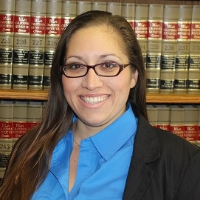Fallbrook Divorce Lawyer, California
Sponsored Law Firm
-
 x
x

Click For More Info:
-
Marlene J. Keen, Attorney at Law
600 B Street Suite 2020 San Diego, CA 92101» view mapDivorce and Family Personalized Service You Deserve
We provide unmatched personal attention for civilian and military clients facing complex family law matters.
800-764-2990
Includes: Alimony & Spousal Support
Alexandria Jaquay
✓ VERIFIEDDivorce & Family Law, Divorce, Family Law, Child Custody, Child Support
Dedicated Exclusively to Family Law
Alexandria Jaquay is an Attorney at the Cullen Family Law Group. Attorney Jaquay is currently an active member of the State Bar of California and prac... (more)
FREE CONSULTATION
CONTACTFREE CONSULTATION
CONTACT Marlene Keen San Diego, CA
Marlene Keen San Diego, CA AboutMarlene J. Keen, Attorney at Law
AboutMarlene J. Keen, Attorney at Law Practice AreasExpertise
Practice AreasExpertise

